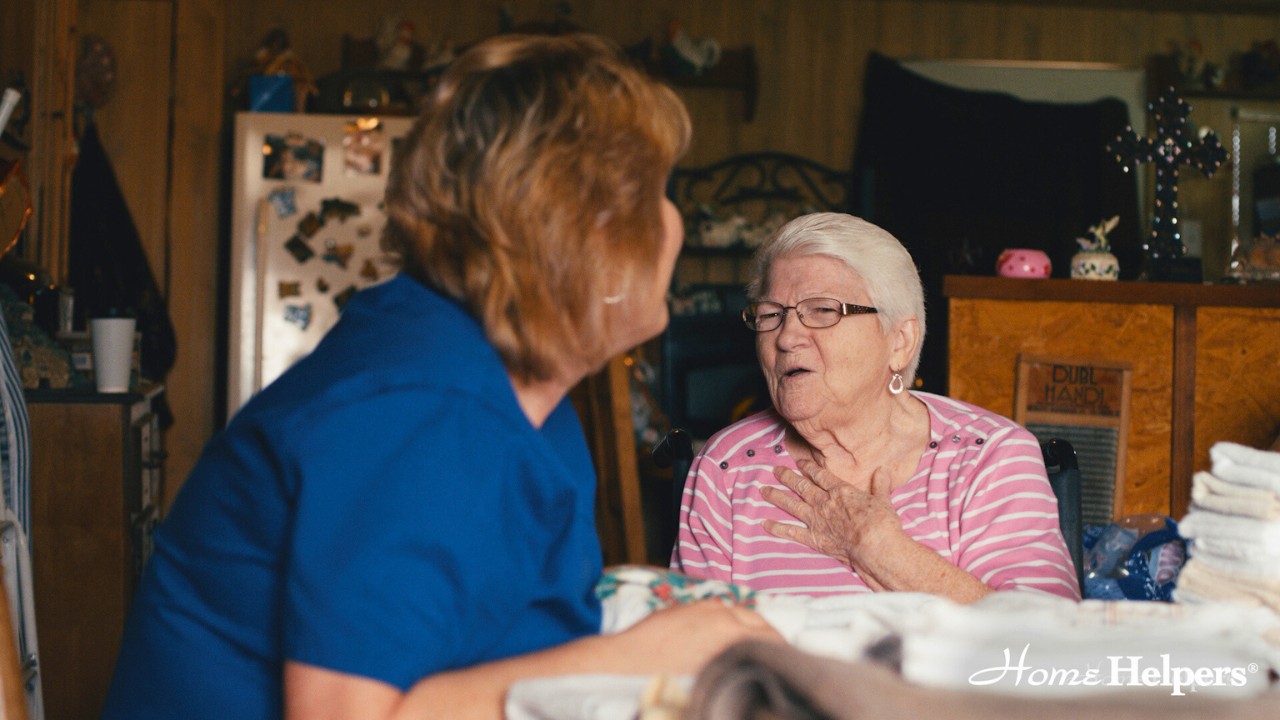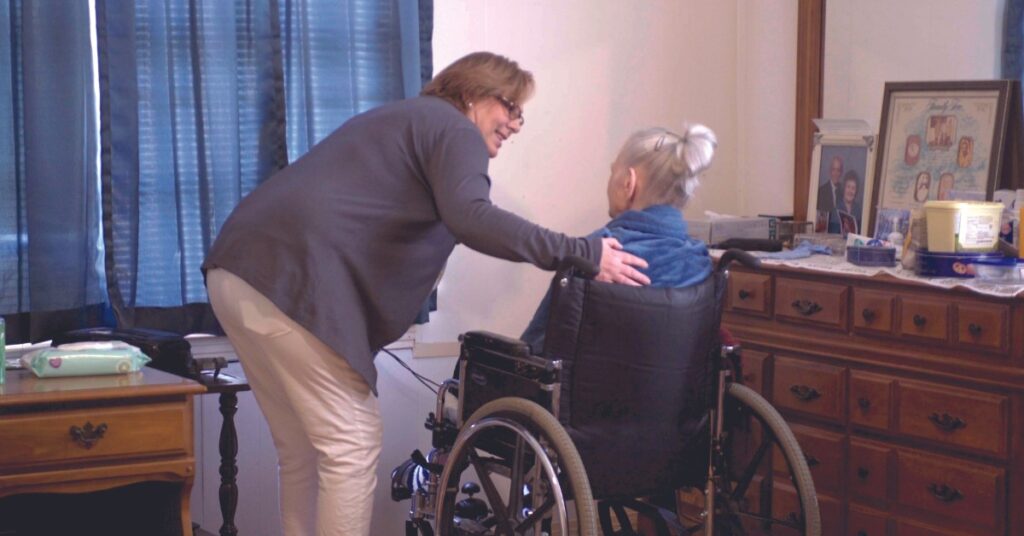The Importance of Active Listening for Caregivers

Author: Jonathan Marsh
Effective communication plays a crucial role in building understanding, empathy, and a strong connection between seniors and their caregivers. When used effectively, active listening can enhance relationships and lead to more impactful interactions. Understanding the key components of active listening is essential for caregivers aiming to strengthen their relationships with seniors.
This blog post explores the significance of active listening. It also provides practical tips for seniors and caregivers to enhance communication and build stronger relationships. Let's uncover how active listening can transform the caregiving dynamic.
Why Active Listening Matters in Caregiver Relationships
Active listening lays the groundwork for meaningful connections between seniors and their caregivers. This means staying fully attentive, involved, and responsive to the thoughts, feelings, and needs of those you are listening to. When family caregivers actively listen, they show genuine interest in the senior's well-being, improving communication and deepening mutual understanding.
Active listening holds immense importance, particularly in caregiving situations where emotions frequently run high. Understanding the speaker involves more than just hearing their words. it requires attention to both verbal cues and non-verbal signals like facial expressions.
These are key aspects of active listening. They help caregivers identify subtle cues that may signal underlying health issues or emotional distress.
Empathizing and Understanding are Key
Empathy and understanding are fundamental to practicing active listening. Caregivers must put themselves in the senior's place, recognize their emotions, and respond with empathy. (View Alzheimer's Association Communication Tips.)
Listening with empathy means you are not just hearing the words but also understanding the emotions behind them. This method can greatly impact the senior’s view of their care and their satisfaction with the caregiving experience.
When practicing active listening, it is crucial to keep an open mind and avoid jumping to conclusions. Maintaining eye contact, nodding, and showing that you are fully engaged helps to convey empathy and understanding. These aspects of active listening are critical for building trust, a cornerstone of any strong relationship.
Advice for Seniors: Communicating Your Needs and Emotions
Seniors can enhance their communication by effectively expressing their needs and feelings to their family caregivers. Communicate openly and honestly, utilizing "I" statements to convey emotions and wishes. Clearly expressing preferences, concerns, and expectations helps seniors empower their caregivers to deliver more personalized care.
Effective communication is a two-way street. Seniors should feel comfortable expressing their points of view, and caregivers should encourage this by being attentive listeners. Seniors who feel heard are more likely to openly express their needs. This openness can lead to better health outcomes and a more rewarding caregiving experience.
Strengthening Relationships Through Active Listening: Some Tips for Family Caregivers
Effective caregiving relies on the active listening skills of family caregivers. Creating an environment conducive to communication is essential. Find a quiet space, minimize distractions, and focus on the person speaking. To convey attentive listening, caregivers should maintain eye contact, nod, and utilize verbal and non-verbal signals.
Practicing active listening means giving the person your undivided attention. This involves more than just hearing the words; it includes understanding the emotions and intentions behind them. When caregivers are patient and non-judgmental, it helps the senior feel heard. Showing genuine interest in the senior’s perspective further enhances this feeling.
Practice helps to improve active listening skills over time. Active listening includes paraphrasing to confirm understanding and asking open-ended questions to encourage communication. Reflecting on what the senior has shared shows that you are listening to understand, not just to respond. For more insights and detailed tips, you can learn from Family Caregivers Online.

Strengthening Conversations with Reflection and Mutual Understanding
Reflection and understanding are essential aspects of active listening. Paraphrasing and summarizing the senior's words ensures that caregivers achieve mutual understanding. By asking open-ended questions, caregivers can dive deeper into the senior's thoughts and emotions. This approach fosters better communication and stronger bonds.
For example, when a senior mentions a health concern, a caregiver might reply, "You sound worried about your health. Can you provide more details about what has been concerning you?" This action both clarifies the situation and conveys that the caregiver is mindful of the senior’s well-being.
Developing Trust for More Resilient Connections
Building trust and enriching the relationship between seniors and caregivers starts with active listening. Showing commitment, respect, and genuine care helps people feel valued, and fosters trust. This leads to deeper connections and improved overall caregiving dynamics.
Building trust is not a one-time event but an ongoing process. It requires consistent effort, open communication, and a willingness to listen and adapt. The benefits of active listening extend beyond the caregiving relationship. They can improve the senior's quality of life and make the caregiving experience more fulfilling for both parties.
The Benefits of Active Listening in Caregiving
The benefits of active listening in caregiving are numerous. For seniors, it means having their needs met in a way that respects their autonomy and dignity. For caregivers, it means being more effective in their role and building stronger relationships with the people they care for.
Active listening means recognizing both verbal and non-verbal cues from seniors. These cues include facial expressions, tone of voice, and body language. This level of attentiveness can help caregivers identify any underlying issues that may not be immediately apparent. For example, a senior who is noticeably quiet or withdrawn might be experiencing health problems or emotional distress.
Listening to understand rather than just respond allows caregivers to address the senior’s concerns more effectively. This can reduce the risk of confusion and improve the overall quality of care.
The Role of Active Listening in Addressing Health Problems
Active listening is also crucial in addressing health problems that may arise in the caregiving relationship. Caregivers who listen closely can identify potential issues early and act accordingly. For instance, mentioning dizziness could suggest a health problem needing attention. This proactive approach helps prevent more serious complications.
Moreover, active listening can help caregivers identify the root cause of behavioral changes in seniors. A senior’s agitation or confusion, for example, could indicate memory loss or early dementia.
Encouraging Open Communication About Health Concerns
Caregivers should encourage seniors to talk openly about any health concerns they might have. This includes discussing conditions such as Parkinson’s disease, which can lead to dementia. It also covers the progression of Alzheimer's, which affects various areas of the brain. Open communication about these issues is essential for effective caregiving.
Seniors diagnosed with Alzheimer’s or dementia, including Lewy body dementia, often have trouble expressing their needs. Understanding these difficulties is crucial for effective care. Caregivers should use active listening techniques and patience. This approach ensures the senior's concerns are both heard and addressed.
Supporting the Emotional Well-Being of Seniors
Active listening not only addresses physical health concerns but also supports seniors' emotional well-being. Caregivers must stay alert to emotional cues that seniors may show, like loneliness, frustration, or fear.
By listening with empathy and understanding, caregivers can provide emotional support that is crucial for the senior's mental health. Such support is essential for seniors experiencing the emotional toll of memory loss or diseases like Alzheimer’s.
Practical Tips for Caregivers to Enhance Communication
To further enhance communication and build stronger relationships, caregivers should consider the following practical tips:
- Maintain an Open Mind:
Be open to the senior's point of view, even if it differs from your own. This openness can lead to more meaningful conversations and a better understanding of the senior's needs.
- Use Verbal and Non-Verbal Cues:
Using verbal cues like affirmations and non-verbal signals such as eye contact and nodding can be highly effective. When we listen attentively, seniors experience a stronger sense of appreciation and acknowledgment.
- Encourage Independence:
Whenever possible, encourage seniors to express their needs and make decisions about their care. This promotes a sense of autonomy and helps to build trust.
- Be an Effective Listener:
An effective listener is one who listens not just with their ears but with their heart. Pay attention to the senior’s emotions and respond with empathy.
- Seek Support When Needed:
If you are struggling with any aspect of caregiving, including communication, don’t hesitate to seek support. You might ask a friend or family member for help with caregiving. If needed, you could also hire a professional caregiver or join a support group for caregivers.
Final Thoughts: The Crucial Role of Active Listening in Caregiving
Active listening serves as the key to meaningful connections between seniors and family caregivers. Embracing active listening allows both parties to improve communication and develop stronger bonds. Seniors articulate their needs and feelings, while caregivers listen with empathy and understanding. Through consistent patience, dedication, and active listening, caregivers can create meaningful connections, build trust, and enhance the caregiving experience.
Let’s make active listening a priority to strengthen and enrich the relationships between seniors and their family caregivers. Caregiving presents a journey full of challenges. However, Strong communication skills and a focus on listening can change the journey. It can become one of connection, growth, and mutual understanding.
